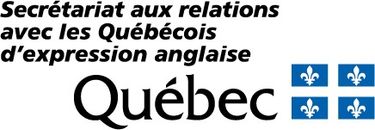Johnson Chair of Québec and Canadian Irish Studies, Associate Professor of Diaspora Studies, School of Irish Studies
November 2022
In September 2022, you launched a podcast called “The Irish in Canada Podcast”. Could you tell me about this project?
When I was made the Johnson Chair of Québec and Canadian Irish studies, one of the mandates was to go out and bring research to the community. I thought that a podcast would be engaging for both my students and the general public, as it makes history come alive. A lot of it is based on my Irish in Canada class, where many students had never heard this side of Canadian history, or, if they knew Irish history, they weren't aware of the Irish Canadian element.
Podcasts as a means for Knowledge Mobilization?
Yes, an effective one. For historians, podcasts have been amazing for promoting research far outside of our own field. It just keeps growing and is a really good way to help everyone enjoy your research, rather than it potentially being more siloed off with academic publishing.
A term you use in your work is “gendered migration”. Could you explain what is meant by this and what it looks like in the Irish-Canadian context?
It's looking at the history of migration and how this experience is affected by being a man or a woman. This is really noticeable in the 19th century, as it was the first time that more Irish women started to migrate outside of Ireland. Their gender dictated the way that they were treated, how they were expected to behave and others’ perceptions of them. Irish women were even banned from immigrating to Newfoundland in the 18th century because they were thought to be too sexually immoral.
There is also the treatment of Irish immigrant mothers, specifically within the medical system. Whilst researching asylums, we see women who were inmates just because they were pregnant or had childbirth complications, whereas today they would likely be in a medical hospital. Women arriving on Grosse Île were being sent directly to the lunatic asylum outside of Quebec City, so they didn't get any of the traditional process of coming up the Saint Lawrence, moving up to Montreal and beyond. We often don’t even know their names; they are just taken out of history.
By 1867, Quebec - and the rest of Canada - had a strong percentage of Irish-born within the population. What historical and lasting effects did this have on the province?
Officially, at least one third of modern-day Quebecers have Irish background, although some people say it's almost closer to 40%. Many are not even aware of it, as it was often Irish women marrying into French Canadian families. Montreal and Quebec City still have very vibrant and involved Irish communities with long histories, such as Montreal’s St. Patrick Society, which is almost 200 years old and demonstrates people putting a lot of emotion and time into maintaining those links to Ireland.
Another example is Thomas D’Arcy McGee, who was the MP for Montreal West and is seen as the Irish Father of Confederation. He enshrined minority education rights in the deliberations during Confederation to ensure Catholics had access to minority schools in a heavily Protestant English Canada. This same right is why we have things today like the English Montreal School Board.
What place do you think language holds in the identity(ies) of Quebec’s Irish community?
It’s a strong part of identity and the Irish language is growing in Quebec. We have a professor of the Irish Language at Concordia, community groups that are teaching Irish, and we actually consider the school to be trilingual: French, English, and Irish.
In terms of English, it's very personal for people. Many with Irish backgrounds were adopted into French Canadian families, or married someone who was French Canadian, whose descendants might have very Irish names but are francophone. As a functional language for community organisations, Irish Heritage Quebec in Quebec City is an example of one that is perfectly bilingual. Most of the people function daily in French, but the group itself will meet in English and there doesn't seem to be any conflict around that.
There were pockets of Irish communities throughout the province, and how well the language has been kept up, if bilingualism has evolved, or if it's just gone to French, varies a lot.
Are there any other projects you’re working on?
I'm writing season two of the podcast, which is scheduled to debut in early March. I'm also finishing up some of the first articles for my Gender Migration and Madness project and have a four-year federal grant to look at the treatment of Irish and other immigrant women by the colonial medical system in Quebec, particularly during the cholera epidemics of the 1800s. Very interesting but problematic history, and definitely counteracts the image of the 19th century as being a dry and boring time.



